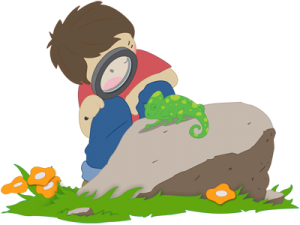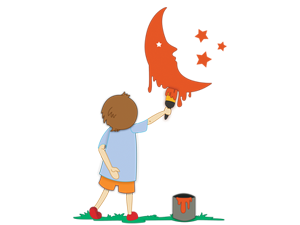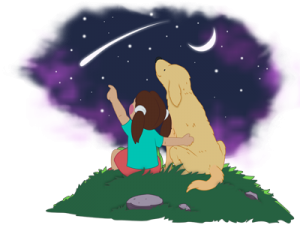Education Model
Arts-Infused Model (Creativity)

We can either walk on the path that already exists or we can create our own path. The ability to think creatively begins with freedom of expression. At The Orange Door, the child has the freedom to choose the way they want to learn. They need not paint inside the lines only…rather the entire world is their canvas. We view creativity as a way for children to express ideas, take risks, make choices, apply new knowledge and explore their curiosities. Art (Visual art, drama, music and dance) helps children to express their feelings, thoughts and imaginations. Freedom of expression makes their social-emotional skills stronger and thus their problem-solving skills. Children who are creative tend to be better problem solvers.
Inquiry Based Model

Young children love to ask questions. It’s one of the ways in which they make sense of the world and their place in it. When children are able to pose questions and investigate the answers, they construct their own knowledge rather than simply be a passive recipient of information being handed out to them. Questions are also a powerful tool for teachers to promote children’s thinking and learning. When open-ended questions are posed, it helps children to share what they already know, wonder, or would like to learn. Learning is more relevant to children when new activities incorporate their prior knowledge. The inquiry learning approach also focuses on HOW we learnt/solved problems (skills) rather than just focusing on what we learnt (knowledge). It is concerned with acquiring the skills of learning . I nquiry-based learning helps children to become more creative, more positive and more independent. Even if they don’t know all the answers just yet, they will know how to find the answers self-sufficiently.
Thematic & Real-World Studies

Our thematic studies are categorized within three main areas and introduced to children in concrete and intentional ways that help them connect everyday experiences to a greater understanding of the world that surrounds them:
- Personal Experiences – Getting to know self, family, friends, feelings and traditions.
- Nature & Environment – Investigating rocks, dirt, insects, plants, animals and natural phenomena.
- Global Communities & Ecosystems – Understanding how the people, plants and animals co-exist, such as in deserts, oceans, grasslands and woodlands.


